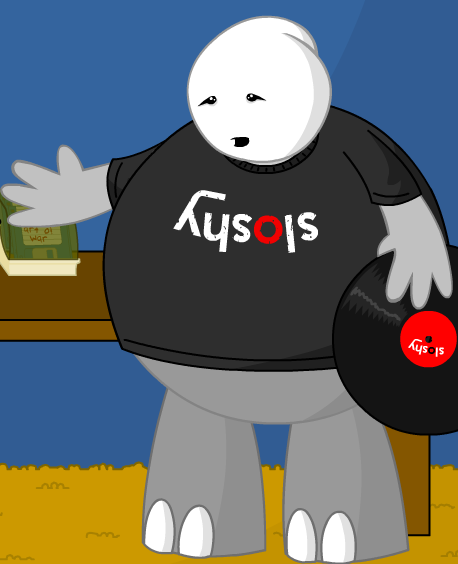of tariffs, imports and customs. Justice Horace Gray delivered the opinion of the Court in holding that the Tariff Act of 1883 used the ordinary meaning of the words “fruit” and “vegetable”, instead of the technical botanical meaning.
In 1883, President Chester A. Arthur signed the Tariff Act of March 3, 1883, requiring a tax to be paid on imported vegetables, but not fruit. The John Nix & Co. company filed a suit against Edward L. Hedden, Collector of the Port of New York, to recover back duties paid under protest. They argued against the tariff by pointing out that, botanically, a tomato is a fruit due to its seed-bearing structure growing from the flowering part of a plant.
At the trial, the plaintiffs’ counsel entered into evidence definitions of the words “fruit” and “vegetables” from Webster’s Dictionary, Worcester’s Dictionary, and the Imperial Dictionary. They called two witnesses, who had been in the business of selling fruit and vegetables for 30 years, and asked them, after hearing these definitions, to say whether these words had “any special meaning in trade or commerce, different from those read”.
Both the plaintiffs’ counsel and the defendant’s counsel made use of the dictionaries. The plaintiffs’ counsel read in evidence from the same dictionaries the definitions of the word tomato, while the defendant’s counsel then read in evidence from Webster’s Dictionary the definitions of the words pea, eggplant, cucumber, squash, and pepper. Countering this, the plaintiff then read in evidence from Webster’s and Worcester’s dictionaries the definitions of potato, turnip, parsnip, cauliflower, cabbage, carrot and bean.
Justice Gray, citing several Supreme Court cases (Brown v. Piper, 91 U.S. 37, 42, and Jones v. U.S., 137 U.S. 202, 216) stated that when words have acquired no special meaning in trade or commerce, the ordinary meaning must be used by the court. In this case dictionaries cannot be admitted as evidence, but only as aids to the memory and understanding of the court. Gray acknowledged that botanically, tomatoes are classified as a “fruit of the vine”; nevertheless, they are seen as vegetables because they were usually eaten as a main course instead of being eaten as a dessert. In making his decision, Justice Gray mentioned another case where it had been claimed that beans were seeds — Justice Bradley, in Robertson v. Salomon, 130 U.S. 412, 414, similarly found that though a bean is botanically a seed, in common parlance a bean is seen as a vegetable. While on the subject, Gray clarified the status of the cucumber, squash, pea, and bean.
Nix has been cited in three Supreme Court decisions as a precedent for court interpretation of common meanings, especially dictionary definitions. (Sonn v. Maggone, 159 U.S. 417 (1895); Saltonstall v. Wiebusch & Hilger, 156 U.S. 601 (1895); and Cadwalader v. Zeh, 151 U.S. 171 (1894)). Additionally, in JSG Trading Corp. v. Tray-Wrap, Inc., 917 F.2d 75 (2d Cir. 1990), a case unrelated to Nix aside from the shared focus on tomatoes, a judge wrote the following paragraph citing the case:
In common parlance tomatoes are vegetables, as the Supreme Court observed long ago [see Nix v. Hedden 149 U.S. 304, 307, 13 S.Ct. 881, 882, 37 L.Ed. 745 (1893)], although botanically speaking they are actually a fruit. [26 Encyclopedia Americana 832 (Int’l. ed. 1981)]. Regardless of classification, people have been enjoying tomatoes for centuries; even Mr. Pickwick, as Dickens relates, ate his chops in “tomata” sauce.
In 2005, supporters in the New Jersey legislature cited Nix as a basis for a bill designating the tomato as the official state vegetable.
I like the truncated version of the title: “for purposes”
Because reasons.
Here I will cite the precedence established in The United States v Go Fuck Yerself.
State of California v Nunya B.
As someone who works with classifying goods imported into the US under the Harmonized Tariff System, this is super interesting. I’ll have to do some research to see if Customs still uses this rationale. Thanks for posting!
Let us know what you find. Something tells me this is a factoid that will stick in my head forever and I must have updated information.
Yep, fresh tomatoes fall under chapter 7 of the HTS - “Edible vegetables and certain roots and tubers”. Pretty much every country uses the first six digits of the HTS code, so at some point the WCO (World Customs Organization - the ones who manage the HTS) agreed with that idea.
Also, in their Explanatory Notes for chapter 7, they say this:
" In headings 07.09, 07.10, 07.11 and 07.12 the word “vegetables” includes edible mushrooms, truffles, olives, capers, marrows, pumpkins, aubergines, sweet corn (Zea mays var. saccharata), fruits of the genus Capsicum or of the genus Pimenta, fennel, parsley, chervil, tarragon, cress and sweet marjoram (Majorana hortensis orOriganum majorana)."
Fun fact: the word “factoid” implies the thing is not a fact, but something which shares some similar properties to a fact. In the same way that a football is a “spheroid” or a cinderblock is a “cuboid”
I’m a humanoid
Oh how interesting. My mental dictionary had factoid as some sort of trivial fact
dictionary-toid*
That is the more common modern usage. I believe ‘factoid’ was originally used to mean a pseudo fact, or falsehood presented as a fact, but that usage is rarely found today.
Knowledge is knowing tomato is a fruit.
Wisdom is not putting it in a fruit salad.
Charisma is convincing you to eat the fruit salad anyway.
Charging that the Agriculture Department “not only has egg on its face, but ketchup, too,” Budget Director David A. Stockman said yesterday he had ordered the withdrawal of proposed federal rules that would have listed ketchup and pickle relish as vegetables in school lunches. . . . Stockman’s rough-edged remarks were an obvious effort at damage-control. The proposed redefinition of the school lunch has let the Democrats embarrass the administration as rarely before. . . . The guidelines were supposed to help schools that provide free or reduced-price lunches to lower-income students as they try to deal with a $1 billion cut in federal support for the fiscal year that begins next Thursday.
Reagan took a billion dollars (in 1981, that’s $3.4 billion today), away from school lunches for children. We know many of them needed that food but republicans said the hell with kids, let’s give lockheed-martin $1,200 for a hammer.
Nothing has changed in the GQP. Well, the descent into utter madness, but they really weren’t that far off in 1981.
It was a simpler time
Webster {attempting to standardize spelling across the English speaking world}
Everyone: oh hey thanks for defining all reality for us.
instead of the technical botanical meaning.
What is the technical botanical meaning of vegetable? A tomato is a vegetable. It’s fine. It’s also a fruit. So what?
There’s no botanical meaning of vegetable. That’s a cooking term. In botany, you have different parts of the plant, like fruit, stem or root, you have different groups of plants, like the ginger family or monocots. And you can say a plant is edible or useful.
Exactly. I don’t why it’s always surprising to people that court battles are fought over legal definitions. That’s how legal definitions are made.
Vegetables are not anything that is not a fruit. Tomatos are both, as are cucumbers. When you say “technically a fruit is blah blah blah”, it says nothing about whether something is vegetable. The definition is from a different domain. The definition of vegetable seems to have to due with human digestion. The botanical definition of fruit doesn’t care about the existence of humans. Vegetables are culinary and to some extent cultural. “Fruit” also has a culinary meaning, but its not technical in that domain. There is no way to “technically” distinguish between fruit and vegetables as “vegetable” isn’t technically botanically defined.
“Vegetable” is a societal construct, separate from biological classification. Quite progressive, really.
If it were a fruit, it would fall under a different section of tariffs. The tariff has rules for rectangles but has an exemption/special case for squares.
That’s a matter of law. Hence the 9-0 decision. It’s still a fruit; it’s still a vegetable.
Nah, it’s not a fruit under law.
deleted by creator
I wasn’t talking about the law. I asked, “What is the technical botanical meaning of vegetable?”. And you start talking about squares and rectangles.
Seemed like a rhetorical question to me, but sure. The technical botanical meaning of vegetable is any plant you can eat safely.
In this case, if the technical meanings were taken, the fruit rules would take precedence over the vegetable rules.
And did you get that from a botany textbook?
deleted by creator








